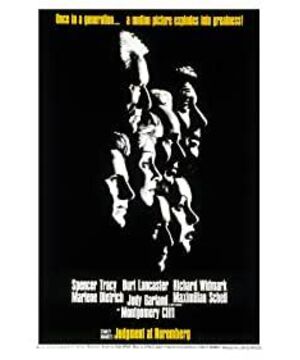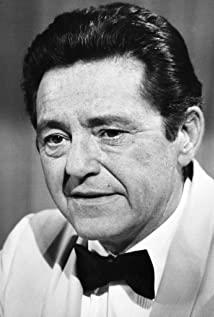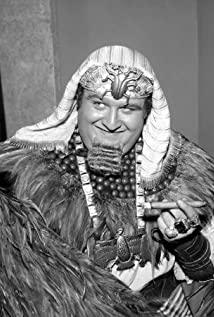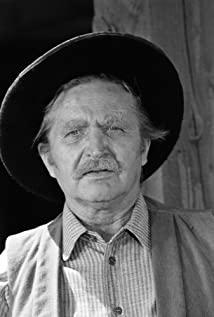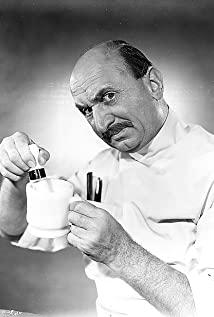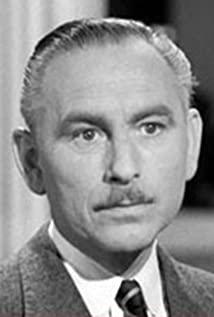The Nuremberg Trial was an international war crime trial held in Nuremberg, Germany after the end of the Second World War from November 20, 1945 to October 1, 1946. It was the first international trial in history for organizers, conspirators, instigators, and plan executors of a war of aggression. Although the Nuremberg Trial liquidated the Nazi system and achieved its temporary goal, the ideal goal of the Nuremberg Tribunal—making war illegal and providing an international tribunal for the trial of aggressive warfare—has caused controversy that continues to this day. However, in any case, Nuremberg is a milestone in the law of international relations, which has left a set of codes of conduct for the contemporary world in dealing with war issues. In the following three years, the U.S. military court conducted 12 follow-up trials in Nuremberg against 177 defendants who held important positions in Nazi Germany’s political, economic, and military institutions and organizations. The film "Nuremberg Trial" was based on One of the judges’ trials (for high-level judicial officials who used the law to persecute Jews and the opposition of the Nazi Party) was adapted. Because it is a direct collision of two different legal forms and legal consciousness, it has shown a huge impact in a series of trials. Controversial and dramatic.
The film made in 1961 brought together the powerful stars of the time and successfully portrayed the characters of the trial judge Dan Haywood, the prosecutor Colonel Tad Lawson, the defense lawyer Hans Rolfe and the former German jurist justice Ernst Janning. At the same time, it won the Oscar for Best Screenplay Award for its ups and downs of the plot. The three-hour movie is basically a confrontation between the prosecution and the defense in court and a large section of witnesses’ confession. The traditional black-and-white images are far from the present in terms of scene scheduling or sound and picture processing. However, such a dull-looking film finally attracted me to come into contact with this distant and special history.
The trial in the film revolved around an intellectually disabled sterilization case and a scandalous death penalty case in the process of implementing Nazi Germany's "Racial Purification Law". Judge Haywood is not facing a brutal and direct perpetrator. The defendants headed by Janning are all well-versed legal elites. In the system of the Third Reich, they abide by their duties to formulate and uphold laws for the country. They use disdain and silence. Resist the trial because, unlike the stubborn resistance of other war criminals, they have the innocence belief in upholding justice and the fluke of being forced to obey the state apparatus to reduce their own responsibilities. Take the defense opinion of Janning’s defense attorney Hans Rolfe as an example. The admirer and follower of Janning quoted Judge Helms in Buck v. Bell and pointed out that sterilization had an early precedent in the United States, thus showing that the law of sterilization is in Germany. The legitimacy of the implementation; through the confrontation with the witnesses, it was proved that the judge at that time had reason to believe that the defendant was indeed mentally retarded and improper, so as to show that the judgment of the case was fair. After the prosecution screened the recorded evidence about the massacre in German concentration camps, the defense lawyer not only protested the court’s adoption on the grounds that it had nothing to do with the case, but also pointed out that the German judge was ignorant of the massacre and was at fault in order to defend the defendant. This also involved the present. The controversy of the film is whether the individual should bear the country's responsibility, and who should bear it. When state responsibility is imposed on individuals, it will inevitably expand the scope of this responsibility, just as defense lawyers finally accused the American arms dealers, signed the "Soviet-German Friendship Treaty" and participated in the partition of the Soviet Union in Poland, and the Holy See, which signed a religious agreement with Hitler. , Churchill, who once praised Hitler in his appeasement speech, should bear the responsibility of the war... This re-examination not only deterred the prosecutors from the object of the object, but also guided the audience from a unilateral sense of subjective justice to both the winner and the loser. Deep thinking about war.
Another controversial point in the film is how to define justice without humanity in the law. This is not obvious in the fierce court battle, but is reflected in the protagonist Janning in the form of a dark line. From the silent resistance at the beginning to the conscience and self-blame confession and repentance in court, his changes were hidden behind the statements and arguments that filled the whole film, but compared with the previous debates on the ownership of responsibility, the contradiction between human nature and the law It is an issue that runs through the film and is even eternally controversial. In the film, there is a testimony by Janning’s teacher, in which it is mentioned that the state apparatus was above the law during the Hitler Empire. The judge began to obey things other than objective justice, and the primary consideration was to oppose the state's punishment regulations instead of Objective consideration of the case itself. As the need to maintain the state apparatus, the phenomenon of law being interfered has always existed. Even in a country like the United States that advertises a high degree of judicial independence and impartiality, the ultimate goal under the appearance of the separation of powers is to serve the overall interests of the country. However, in the film, Nazi Germany not only caused the judicial administrative power to fall into the hands of the dictator, which fundamentally undermined the justice of the judicial system, but also caused the biggest man-made disaster in human history because of its anti-human guidance. It can be seen from the film that in the process of promulgation and implementation of the law, senior judicial officials like Janning also faced difficult choices. Some people followed their conscience and were forced to resign and were even persecuted by the authorities. It is against my will to choose to accept and gradually identify with the professional ethics in this country. They may hesitate at first, but when the scale of judgment falls to the opposite of subjective consciousness represented by human nature, Jannings can transcend their inner compassion to mechanically maintain "justice." It can be said that they are not simply under political pressure, but a part of their identification from an objective standpoint, and this identification must be rejected in the Nuremberg trial, and it is also the most convincing part of incurring guilt for them. . So when Janning finally claimed that he did not know that their sentence would bring so many killings and deaths, Judge Haywood's response was "When you sentence the first person to death, you should understand this." There is no difference between human life and everyone’s life from the perspective of human nature. When Janning denies this, it is not that they have not thought of the possible consequences, but that they are simply because they are afraid to think about it or not. Fundamentally redefines the concept, covering up the self-deception mentality.
In addition to the profound discussion of law and human nature, I think the biggest charm of the film lies in its choice of angle and way of restoring history. To deal with this grand historical subject matter, the first thing we must follow is the facts, but this does not mean only the recurrence and splicing of historical events (that will be no different from a general documentary), but to convey the creator’s thoughts to the audience And convince the audience to resonate. The "Nuremberg Trial" shows the entire trial process from the perspective of the Haywood trial judge. Under the eye-catching fierce confrontation between the prosecution and the defense, the trial judge has always maintained a neutral posture as a bystander, which naturally leads the audience. Into a relatively objective viewing position. In addition to the dominant court scenes, the film interspersed with his acquaintance with Madame Bertholt, the widow of a senior German general, also has its profound intentions. Madame Bertholt's nobility and style deeply attracted Judge Haywood, and at the same time, she tried her best to influence Haywood to change her view of the German people in order to protect the dignity of her husband and the former upper class of German society. Through the eyes of the presiding judge, what we see is a Germany that is struggling to forget the wounds of war, and even seeks to save it with a relatively humble attitude. The disasters brought about by war are the same, regardless of whether it is won or lost. Seek the possibility of recovery. This can also explain why Haywood spends time reading Janning's legal works, and will give the defendant a chance to defend himself in the course of the court dispute. The greatest sympathy and understanding he can do is to resist the outrage of the people beyond reason. Both parties have equal freedom of expression. It is interesting to note that Haywood also encountered problems similar to Janning. As the entire trial was delayed for too long and the United States was eager to obtain the support of the German people to counter the political threats from the Soviet Union, the United States government pressured the courts to deal with these non-primary issues lightly. Responsible, at this time Haywood withstood the pressure and sentenced the defendant to a guilty verdict, which is exactly what Janning failed to do. In this regard, the justice contest between the two judges also came to a result. It is no wonder that Janning, even though he was sentenced to a severe sentence, still expressed his sincere admiration to Haywood, and felt quite sympathetic to each other. After expressing enough sympathy and understanding, the film finally returned to objective justice.
"The Nuremberg Trial" is easily reminiscent of the "Tokyo Trial" made in China in recent years, but the former is beyond the reach of the latter in terms of angle and depth. Or the question raised by the title, who pays for history? I think these are not just a few people, or even organizations or governments that can afford it. In connection with the generally high anti-Japanese sentiment of the Chinese people in recent years and the accompanying mentality of revenge, the overwhelming sexual sentiment in the "Tokyo Trial" made me faintly worried. We learn history not only to remember, but also to remember. From it, it draws lessons for adapting to contemporary living rules. In other words, we need to be patriotic rationally. The premise is not only to remember the disasters suffered by the country, but also the profound historical inevitability behind the disasters. Learn to introspect when you complain, and forgive when you remember.
View more about Judgment at Nuremberg reviews


